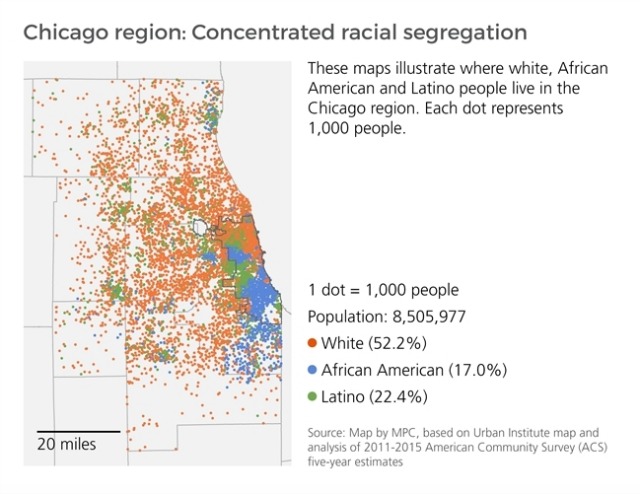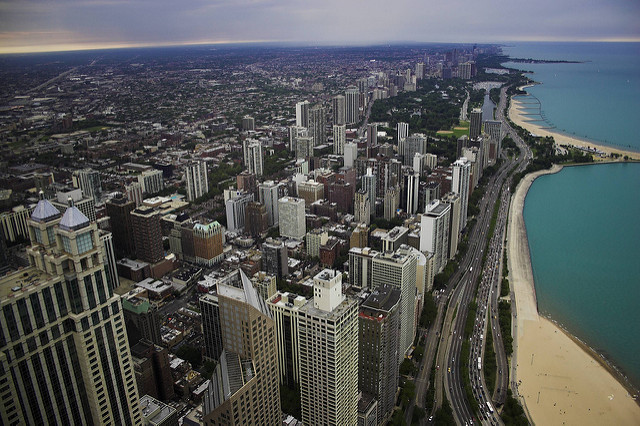The Cost Of Chicago's Segregation (In Lives & Dollars) Is Staggering
By Stephen Gossett in News on Mar 28, 2017 4:26PM
We know that Chicago is one of the most segregated cities in America—as high as third or second most segregated, in fact, according to recent gauges. But to what extent does that segregation cost the city? An extreme amount, according to a new study.
In "The Cost of Segregation," the Metropolitan Planning Council went through the data with a fine-tooth comb and found precipitous losses in income, potential and life itself due to Chicago's long-standing, entrenched segregation.
Income: If Chicago's level of segregation (economic and African American-to-white) were diminished down to the national median, additional income would jump up a staggering $4.4 billion. Among the region's black population, average annual income would shoot by $2,982, researchers found. Gross domestic product suffers to the tune of roughly $8 billion due to the Chicago area's well-above-average levels of segregation.
Lives: Similarly, a regression to the national segregation mean would mean more than 200 lives saved. The homicide rate would fall 30 percent, the study concluded. (Something officials would be wise to remember as federal and local leaders negotiate solutions for Chicago's violent crime struggles.) That decline in homicide would have also had the domino effect of $65 million in policing-cost savings, some $218 million in corrections-costs savings and a $6 billion home-and-apartment value increase, the MPC found.
Potential: Total lifetime earnings are $90 billion lower than they would be if black-to-white segregation in Chicago mirrored national averages; and an additional 83,000 more people in the area would have earned a bachelor's degree.
It's a sobering conclusion across the board—one that demands a host of prescriptions. In phase two of the study, MPC will next turn toward that challenge. "We will develop and model housing, transportation, economic, health, safety and education policy interventions that set us on the path toward less segregation, greater equity and a more productive economy," wrote researchers. "These policies will define a future city, county and regional advocacy agenda."

